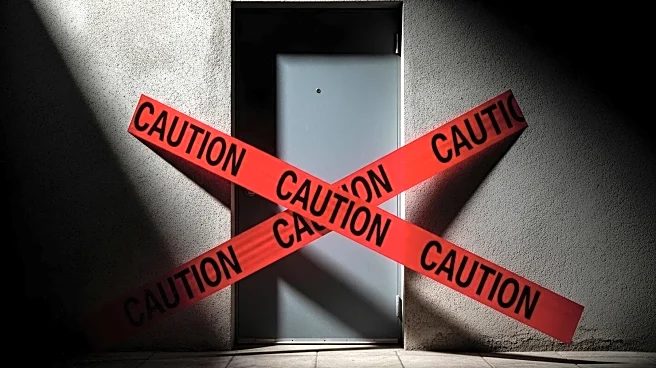What is the story about?
What's Happening?
The Metropolitan Police has issued a warning about hostile states, including Russia and Iran, recruiting children and young adults in London to carry out sabotage and other crimes. Cdr Dominic Murphy, head of counter-terrorism, reported a five-fold increase in hostile state activity since the Salisbury poisonings in 2018. The warning follows convictions related to an arson attack on an east London warehouse linked to the Wagner Group, targeting aid bound for Ukraine. The police urge parents to monitor their children's online activities, as foreign powers increasingly exploit young people as proxies for criminal activities.
Why It's Important?
The recruitment of youths by hostile states poses significant threats to national security and public safety. It highlights the evolving tactics of foreign powers in circumventing traditional security measures by targeting vulnerable individuals. The situation underscores the need for increased vigilance and cooperation between law enforcement and communities to prevent such activities. The involvement of young people in state-sponsored crimes raises ethical and legal concerns, emphasizing the importance of safeguarding the integrity of national security and protecting the rights of individuals.
What's Next?
The Metropolitan Police and the Home Office are likely to intensify efforts to disrupt state threats and protect young people from exploitation. This may involve enhanced monitoring of online activities, increased public awareness campaigns, and collaboration with international partners to address the global nature of the threat. The situation calls for a comprehensive approach to counter-terrorism that includes preventive measures, community engagement, and legal frameworks to hold perpetrators accountable.
Beyond the Headlines
The recruitment of youths by hostile states raises broader questions about the impact of geopolitical tensions on domestic security. It highlights the need for robust policies that address the root causes of radicalization and exploitation, including social and economic factors. The situation also prompts discussions about the ethical responsibilities of governments and communities in safeguarding young people from manipulation and harm.















